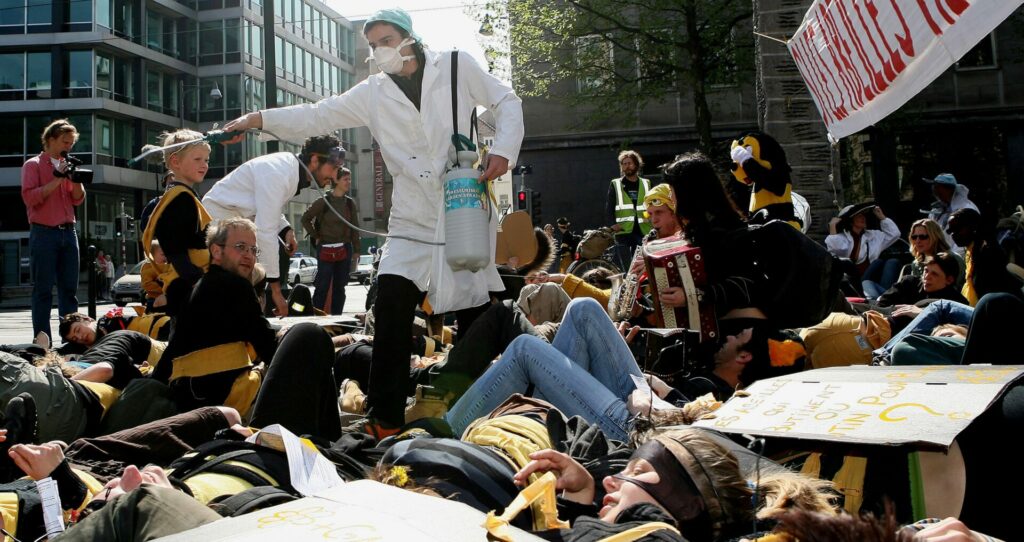Some 80% of the active substances labelled as highly toxic by the European Union continue to be used in Belgium, as revealed in a new study by Nature&Progrès and PAN Europe, and reported in La Libre.
PAN Europe has drawn up a list of 12 substances that need to be urgently eliminated due to their toxicity. However, these “12 toxic substances”, such as tebuconazole, cypermethrin or pendimethalin, are found in about a hundred pesticides authorised in Belgium.
The two associations have recently filed a lawsuit against the Belgian Minister of Agriculture for refusing to comply with European regulations on pesticides. In January the EU Court of Justice ruled that Member States cannot exempt themselves from bans placed on certain pesticides, but Belgium continued to issue waivers on highly toxic substances, such as Indoxacarb.
In addition to these substances, almost one third of Belgian pesticide authorisations concern products classified as carcinogenic or toxic for reproduction.
“Some twenty of these pesticides are classified as both carcinogenic and reprotoxic,” the report states, taking the example of chlorotoluron, suspected of causing cancer and harming the foetus. Yet six herbicides based on this substance are still authorised in Belgium for winter cereal and apple/pear crops.
Infants may be exposed to more #pesticides than adults because they take more breaths per minute and have more skin surface relative to their body weight; another reason why EU cities need to become safe for children. Register now for this webinar: https://t.co/gOtD2AThzX
— PAN Europe (@EuropePAN) March 27, 2023
21% of authorisations issued in Belgium concern pesticides that can be substituted and should therefore have been phased out since 2015.
Related News
- A toxic trade: Belgium a massive exporter of EU-banned pesticides
- Agriculture Minister sued by environmental groups for pesticide inaction
The two associations accuse the Belgian state of “abusively providing temporary derogations” to pesticides banned at European level for their excessive toxicities. The report notes that the number of Belgian derogations has increased from 14 in 2011 to 64 in 2022, which is higher than the European trend.
Belgium is a massive exporter of chemicals banned within the EU and one of the most pesticide-polluted countries in Europe. High concentrations of pesticides, both legal and illegal, have been found in vegetables and groundwater in regions across the country.

